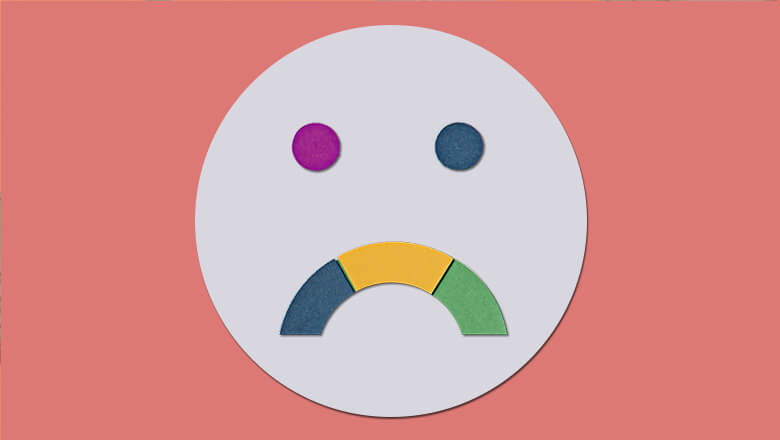How to Dispute a Credit Report and Win the Dispute Case
One of the most important chores on any financial to-do list is to regularly review your credit reports for errors. If an error does appear, disputing it is a fairly simple process with a big potential payoff: It might help build your credit score.
Keep reading to learn how to dispute a credit report and win.
How to Get an Accurate Credit Report
Consumers can access their credit reports for free every 12 months from the three major credit bureaus: Experian, TransUnion, and Equifax. These credit reporting companies feature similar but not identical data, and any errors may appear on one or more reports.
There are three ways to request a report:
• Online: AnnualCreditReport.com
• Phone: (877) 322-8228
• Mail: Download an Annual Credit Report Request form from the URL above, and mail it to:
Annual Credit Report Request Service
P.O. Box 105281
Atlanta, GA 30348-5281
You can request all three reports at once or each one at different times without paying a fee. Helpful hint: By ordering one at a time and spacing out requests every four months, you can be fairly confident about catching major issues while they’re fresh and easier to dispute. For example, you might order the Experian report in February, the TransUnion one in June, and Equifax in October – all for free.
After your free annual access has ended, you can pay to check your credit reports as often as you like. Credit reporting companies can’t legally charge a consumer more than $13.50 for a report. It’s also possible to access credit reports through specialty consumer reporting companies, some of which charge a fee.
Track your credit score with SoFi
Check your credit score for free. Sign up and get $10.*
Recommended: What Is the Difference Between Transunion and Equifax
Why It’s Important to Correct Mistakes in Your Credit Report
Credit reports generally make it easy to spot negative financial information like missed payments. However, take care to review your credit report for other incorrect data, however minor, such as former addresses and employers. Common credit report errors include inaccurate bank balances, duplicate account info, and false late payments.
In case of an error, take steps to have the mistake removed as soon as possible. Credit report errors can lead to a bad credit score, impact loan applications, or raise your interest rate. Bad marks on a credit report can also affect your employment options, insurance premiums, and ability to rent an apartment.
Recommended: Developing Good Financial Habits
How to Dispute Errors on Your Credit Reports
To dispute an error on a credit report, you’ll need to contact each credit bureau that published the error. Mistakes can appear on one report only or all three. Each credit bureau has its own dispute process, so check the instructions on AnnualCreditReport.com or the individual credit bureau sites. You’ll likely need to fill out a dispute form and provide supporting documentation that helps prove an error was made.
If your dispute is accepted, follow up to make sure the credit bureau and the business that supplied the incorrect information update their records accordingly. If a mistake is easy to prove, start with the business that made the error. Be aware that credit bureaus and businesses cannot charge you to correct errors on your report.
In the case that a mistake on a credit report is due to identity theft, it’s important to report that to IdentityTheft.gov and get a personalized recovery plan.
Recommended: Guide to Building Credit With No Credit History
Example Letter for Disputing a Mistake on Your Credit Report
Usually, a dispute needs to be submitted in writing. If you submit a letter via the Post Office, send it certified mail with “return receipt requested.” That way you have proof that the credit bureau received the letter.
The following information should generally be included in a dispute letter:
Identifying Information
The date, consumer’s name, and their address all need to be included in the letter.
Each Item That Needs Disputing
Whether there is one error or many, each one should be outlined briefly and clearly. Identify each error, explain why the information is wrong, and supply the correct information if applicable. Then request to have the error corrected or removed.
Copy of the Credit Report
It can be helpful to enclose a copy of the credit report with the errors circled. Don’t send any original documentation with your letter. Make copies and keep the originals safe in case they are needed again.
Why Consider Credit Score Monitoring
To efficiently keep an eye on your credit reports, you may opt to use a credit monitoring service. These services will update account holders when certain credit updates appear, such as new accounts, hard inquiries, high credit card balances, or a missed payment.
Not only does credit monitoring make it easier for consumers to stay on top of their credit and work toward building their credit score, but it can help catch fraud and identity theft early.
How to Report Credit Scams
If you suspect you’ve been the victim of a credit scam, report it to IdentityTheft.gov, a division of the Federal Trade Commission. They will provide a personalized recovery plan, walk you through the steps, track your progress, and even pre-fill forms and letters for you. Then, you should dispute any false information on your credit report.
The Takeaway
Disputing and correcting errors on your credit report is usually straightforward, as long as the mistake can be proven. Whenever possible, reach out directly to the business that reported the mistaken info. Then, follow the dispute instructions for each of the three major credit bureaus: Experian, TransUnion, and Equifax. Regularly review your credit reports annually to catch errors early, before they negatively affect your financial record – and your life.
Take control of your finances with SoFi. With our financial insights and credit score monitoring tools, you can view all of your accounts in one convenient dashboard. From there, you can see your various balances, spending breakdowns, and credit score. Plus you can easily set up budgets and discover valuable financial insights — all at no cost.
FAQ
Who always wins a credit dispute?
There is no one party or side that always “wins” a credit dispute. If the consumer can document that an error was made, they will likely win the dispute.
What reason should I put for disputing a credit report?
The reason for disputing an error on a credit report can be a typo, outdated information (more than seven years old), data that belongs to another consumer, or fraud, among other things. Include any supporting documentation you have to help strengthen your argument.
Does disputing a collection notice reset the clock?
No, but a dispute does pause the clock in regard to bill collectors. Once you dispute a debt in collections, the collections agency can’t contact you again until they have provided verification of the debt in writing to the consumer.
About the author
Photo credit: iStock/mediaphotos
SoFi Relay offers users the ability to connect both SoFi accounts and external accounts using Plaid, Inc.’s service. When you use the service to connect an account, you authorize SoFi to obtain account information from any external accounts as set forth in SoFi’s Terms of Use. Based on your consent SoFi will also automatically provide some financial data received from the credit bureau for your visibility, without the need of you connecting additional accounts. SoFi assumes no responsibility for the timeliness, accuracy, deletion, non-delivery or failure to store any user data, loss of user data, communications, or personalization settings. You shall confirm the accuracy of Plaid data through sources independent of SoFi. The credit score is a VantageScore® based on TransUnion® (the “Processing Agent”) data.
*Terms and conditions apply. This offer is only available to new SoFi users without existing SoFi accounts. It is non-transferable. One offer per person. To receive the rewards points offer, you must successfully complete setting up Credit Score Monitoring. Rewards points may only be redeemed towards active SoFi accounts, such as your SoFi Checking or Savings account, subject to program terms that may be found here: SoFi Member Rewards Terms and Conditions. SoFi reserves the right to modify or discontinue this offer at any time without notice.
Financial Tips & Strategies: The tips provided on this website are of a general nature and do not take into account your specific objectives, financial situation, and needs. You should always consider their appropriateness given your own circumstances.
Third-Party Brand Mentions: No brands, products, or companies mentioned are affiliated with SoFi, nor do they endorse or sponsor this article. Third-party trademarks referenced herein are property of their respective owners.
SORL-Q224-1921134-V1
Read more




